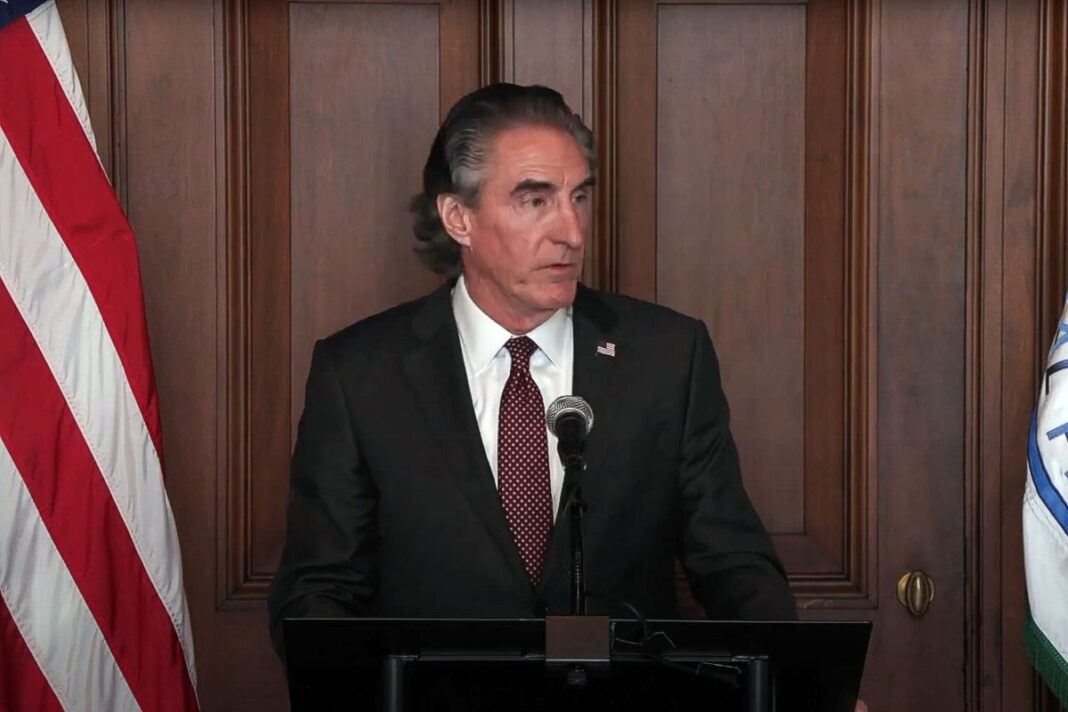Interior Secretary and former North Dakota governor says states, not federal agencies or Congress, will drive energy development under the new administration.
President Donald Trump has launched an “all-of-government” regulatory reform blitz designed to trim permitting times for energy projects by half, not just for economic development, but for the United States to have robust energy infrastructure to win an existential race with China in mastering the artificial intelligence (AI) that will define the 21st century, Interior Secretary Doug Burgum said Feb. 21.
Without dramatically accelerated energy development of all types—especially base-load fossil fuels and nuclear—the former North Dakota governor told 48 of the nation’s 55 state and territorial governors attending the National Governors Association (NGA) 2025 Winter Meeting in Washington, “We will lose the AI arms race.
“We can be ahead in technology, but if we lose on the power generation side, we still lose that AI race,” Burgum said.
That is where governors must lead, he said. The states, not federal agencies and Congress, are the spearhead, the drivers in energy development, something Trump acknowledges in his administration’s commitment to clear away tiers of bureaucratic clutter to “unleash American energy,” Burgum said.
In canvassing the nation’s energy leaders as Interior secretary and chair of the newly created National Energy Dominance Council, all want the government to move at “the speed of business,” he said.
“How long does it take to build a pipeline? How long does it take to build a key piece of energy infrastructure?” Burgum continued. CEOs “give me a number and I’m like, I can’t go in a meeting with the president and tell him that because he wants that to be half of that time. He wants to cut these times in half.
“We have the speed of government and then there’s a new thing—the speed of Trump. He expects [federal agencies] to go faster than the states and faster than business.”
The president wants governors to have the throttle—and whatever federal resources they need—at their fingertips, Burgum said.
By John Haughey







